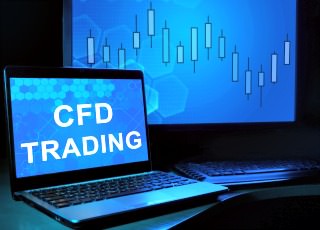Understanding a cfd

In a nutshell, a cfd, which is commonly referred to as a contract for difference, is an agreement that is put in place between a stock or share seller and a buyer, such as between a spread betting company and an investor.
The value of an asset can differ between the time the asset is exchanged at the start of the contract, and the amount that it is worth at the time the contract ends. Therefore, a contract for difference is when the seller pays the difference to the buyer. On the other hand, if the value of the asset is less at the end of the contract than it was at the start of it, the buyer then pays the seller the said difference.
For all intents and purposes, a contract for difference is a simple equity exchange. A contract for difference is marked to market each day and is therefore not subject to a fixed expiration. Furthermore, they can be altered to suit the individual needs and requirements of the parties concerned without having to deal with any of the usual exchange fees.
Feasibility of a cfd
Some question the feasibility of a contract for difference in the market because there might be a problem with pricing a contract for difference. They may also point out that there could be problems delivering or receiving the underlying instrument that the contract for difference is based on. This is when it is necessary to note that one of the main attractions of such an equity exchange is that trading on the margin in the market is possible. In fact, this is one of the main reasons why it is a popular as it is.
Brokers also appreciate the prospects associated with this system since they can enjoy market commission from the trades. Because of the marking to market on a daily basis, the default risk is also drastically reduced, making the contract for difference business even more appealing to those in the brokerage world.
In summary
Unlike regular market stock, a cfd does not carry votes. Instead, they ensure that investors are able to enjoy a certain level of economic exposure but at a reduced cost when compared with the purchase of shares. Because no asset is actually purchased, there is no stamp duty to contend with. Since the investor only has to place a nominal deposit on trades, which is called a margin, there is a greater chance of larger profits. Of course, the converse is also true, as the investor can also suffer a larger loss.
When all is said and done, a cfd makes it possible for an investor to enjoy and benefit from the many advantages that come with owning shares, but without so many of the usual drawbacks and inconveniences.
Related articles
CFD forex short term trading
CFD trading (Contracts For Difference)
The CFD broker role in the three CFD provider business models
CFD trade and the money
Forex CFD: Foreign exchange and Contract for Difference
CFD online trades add potential for increasing income